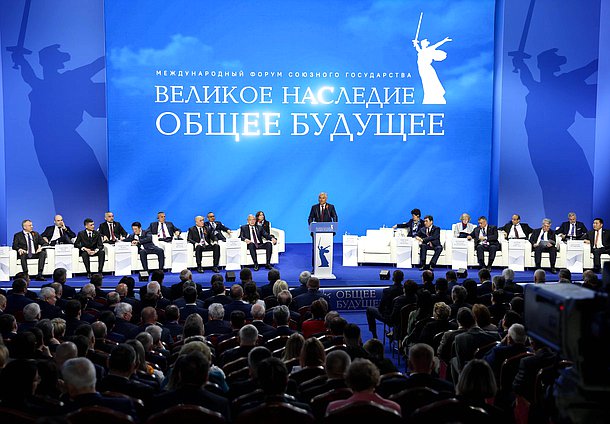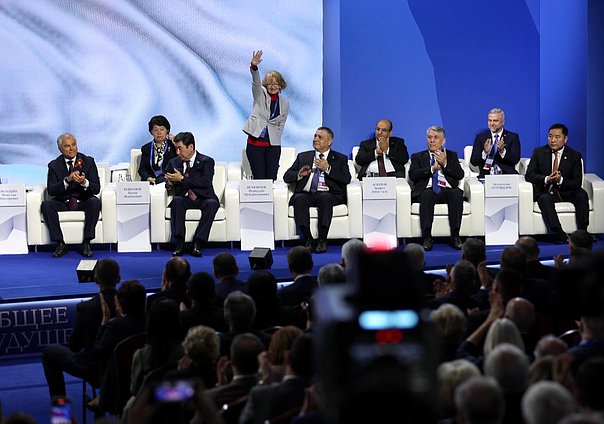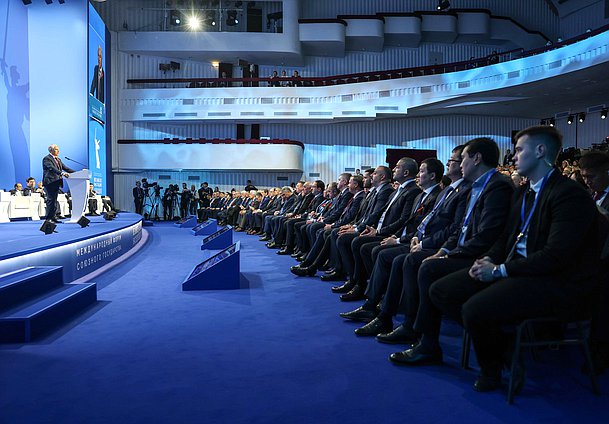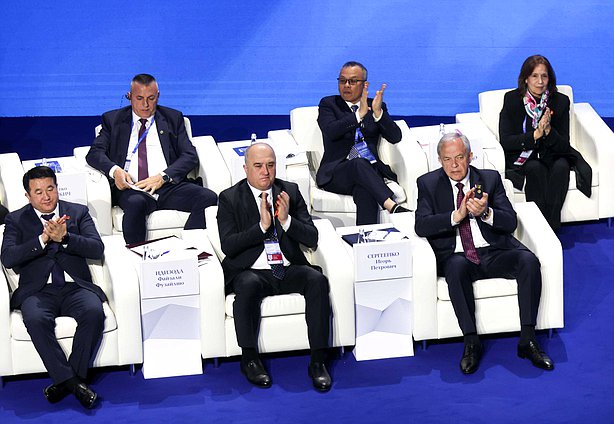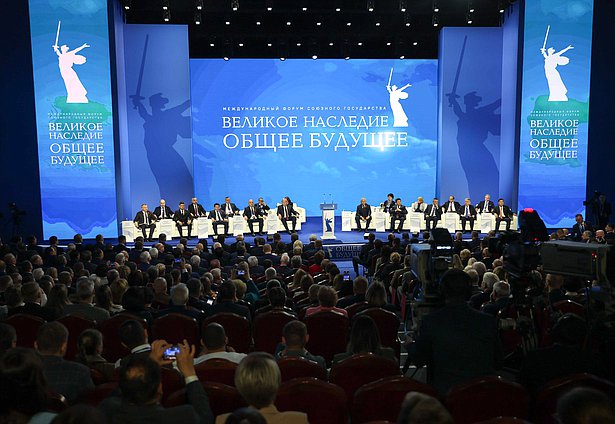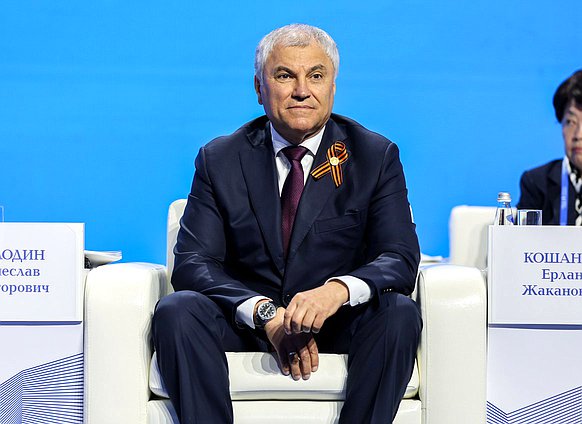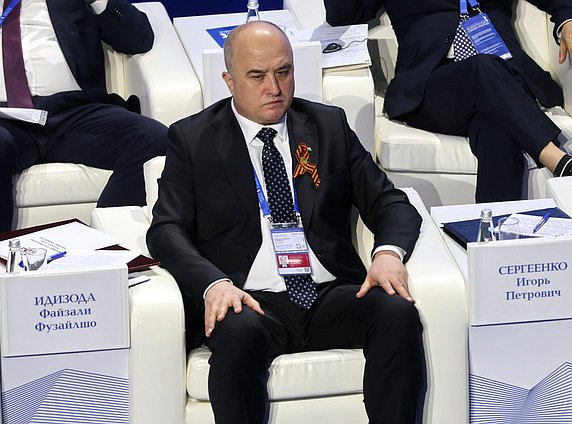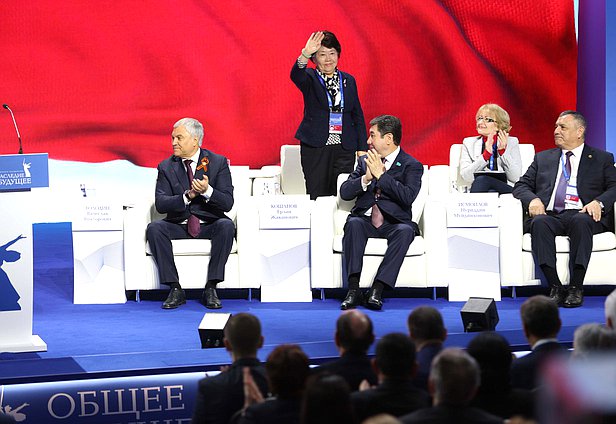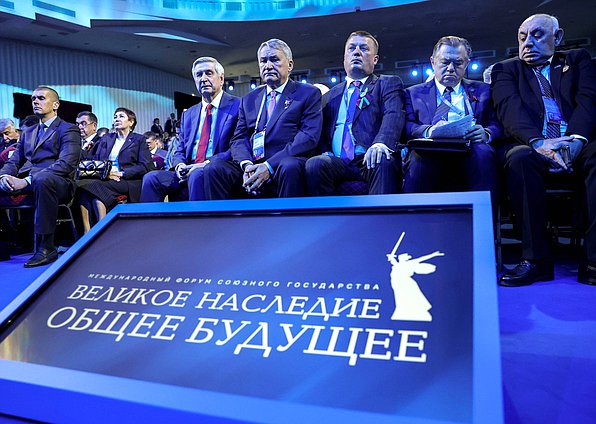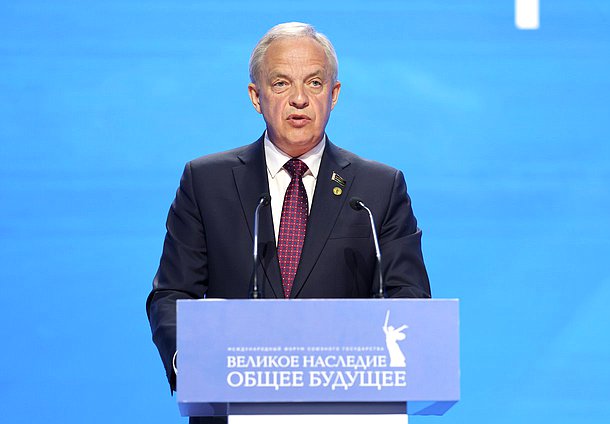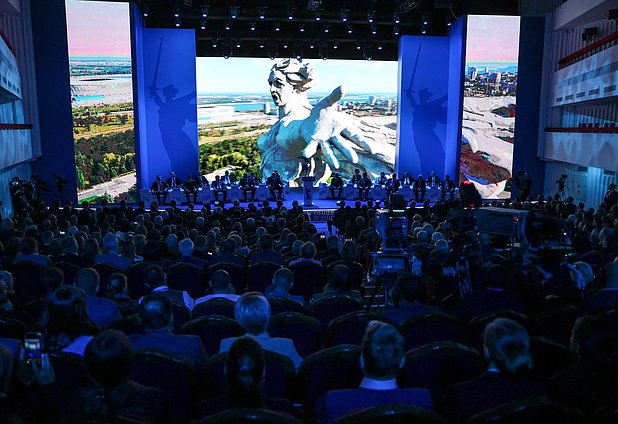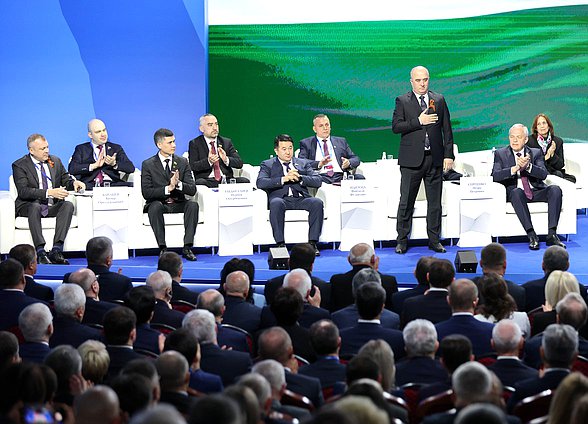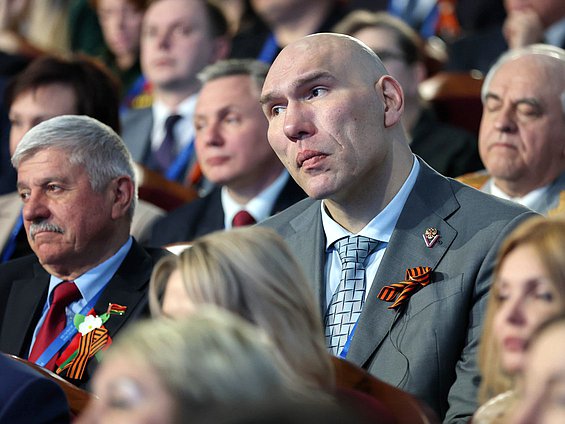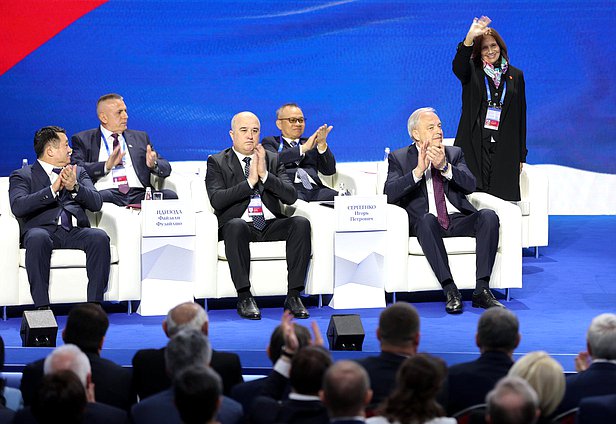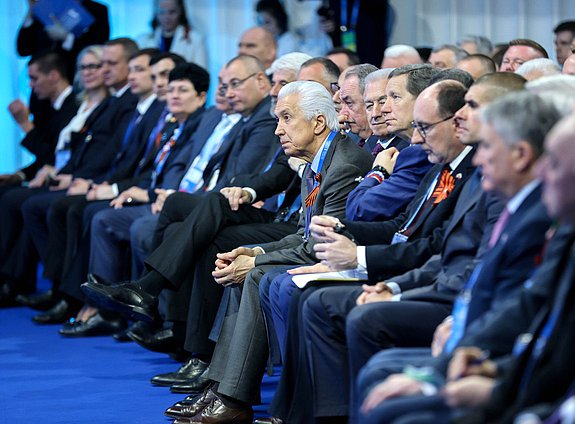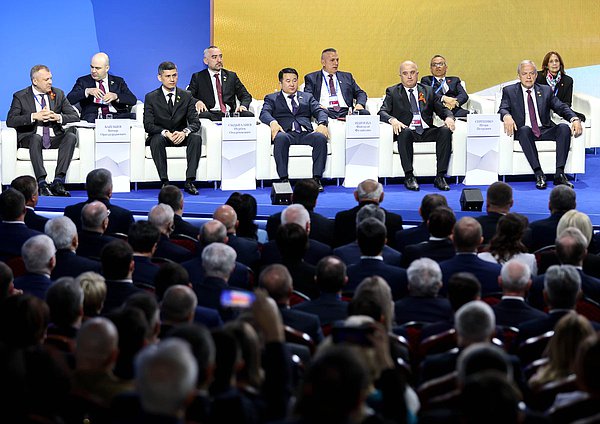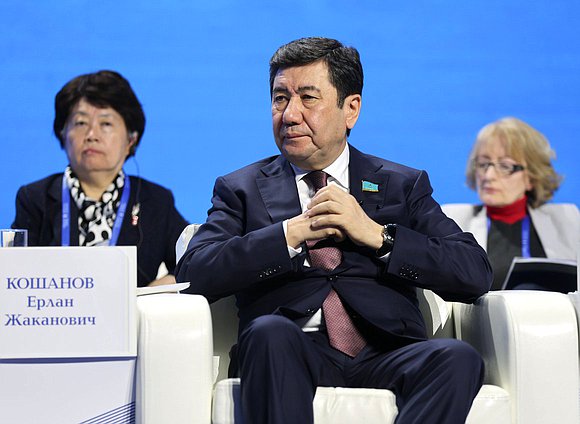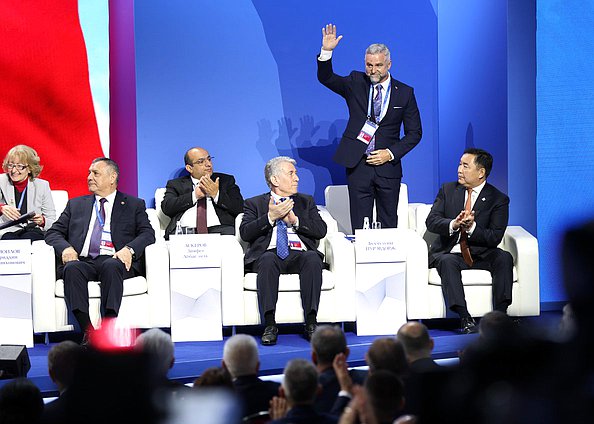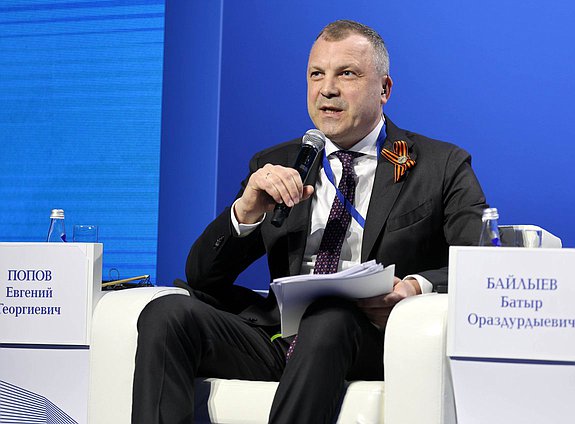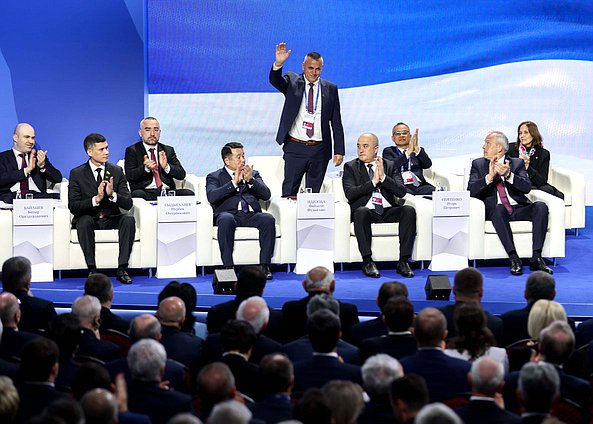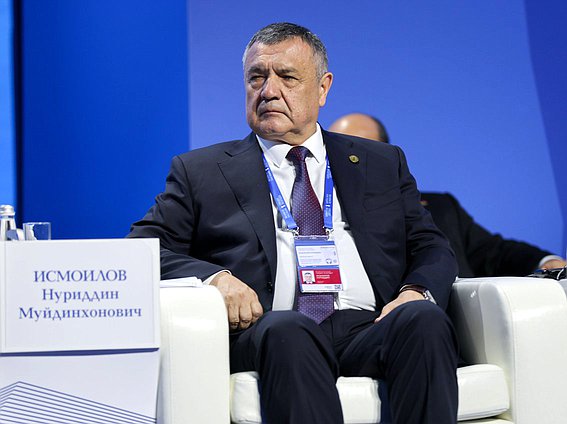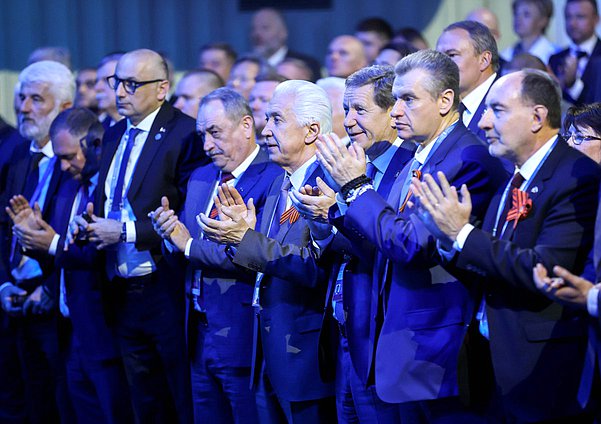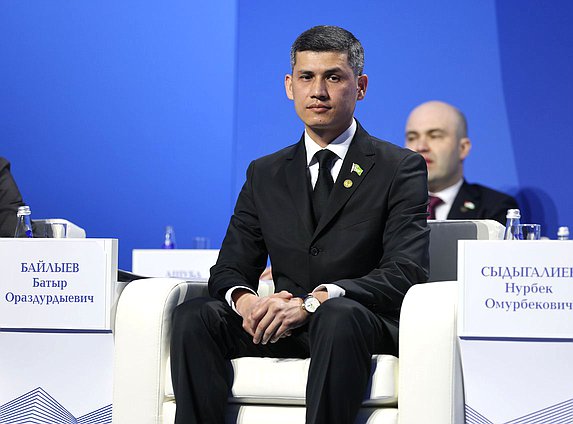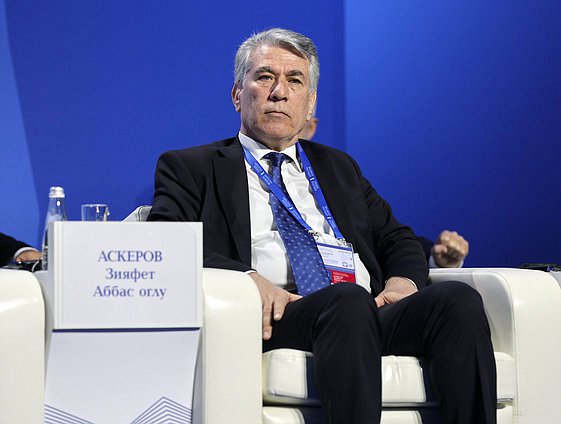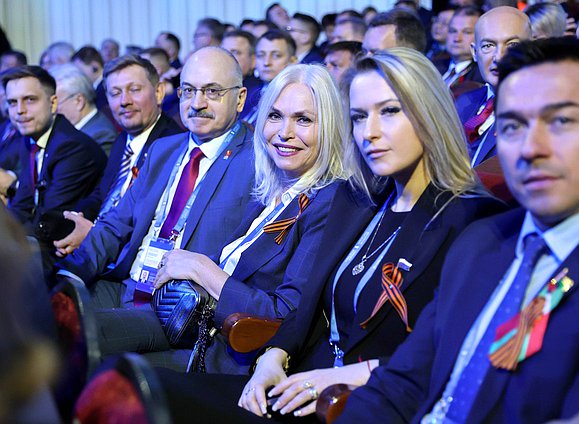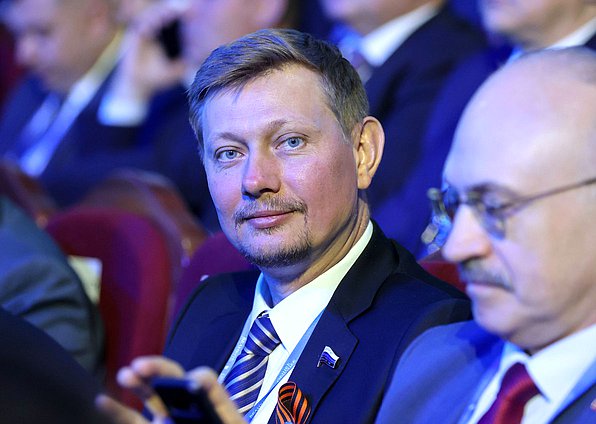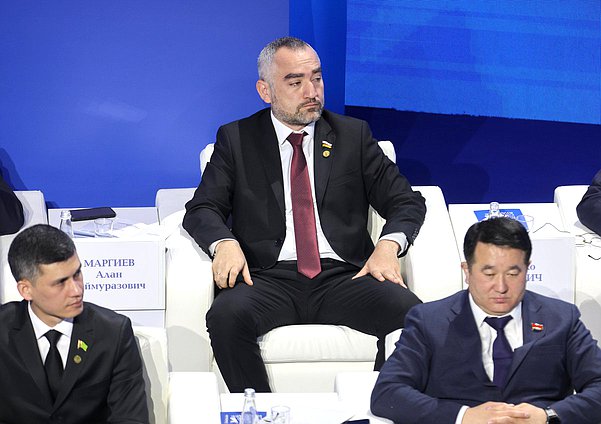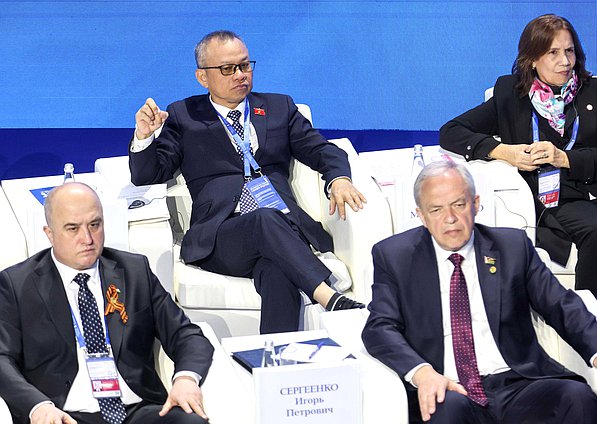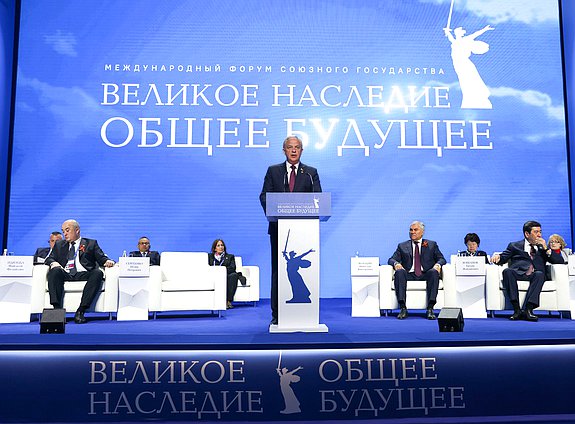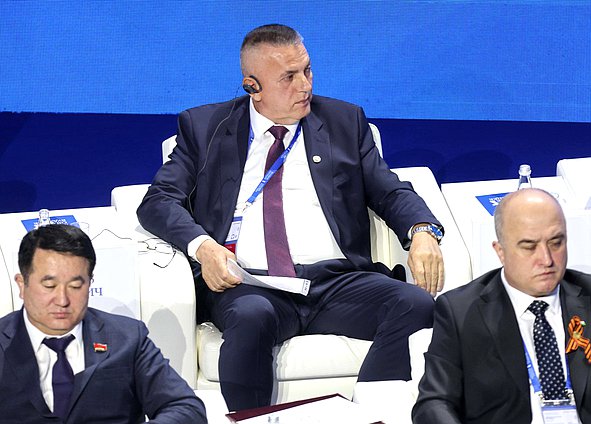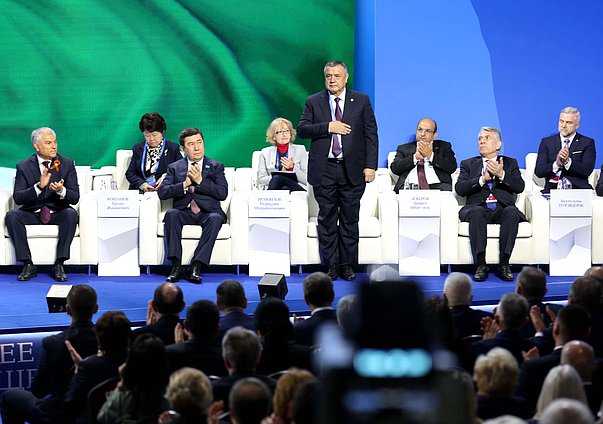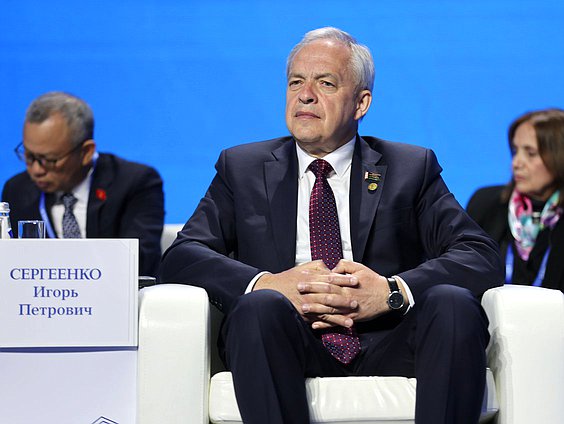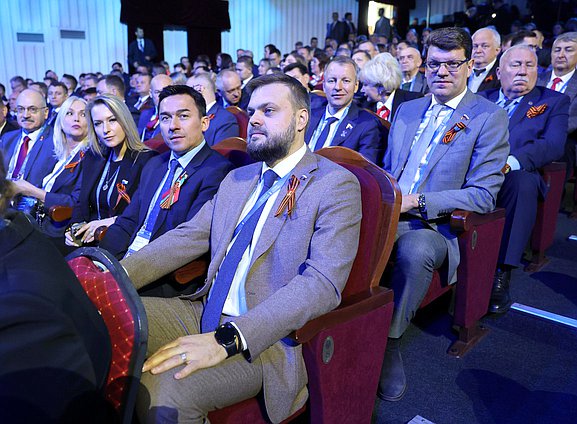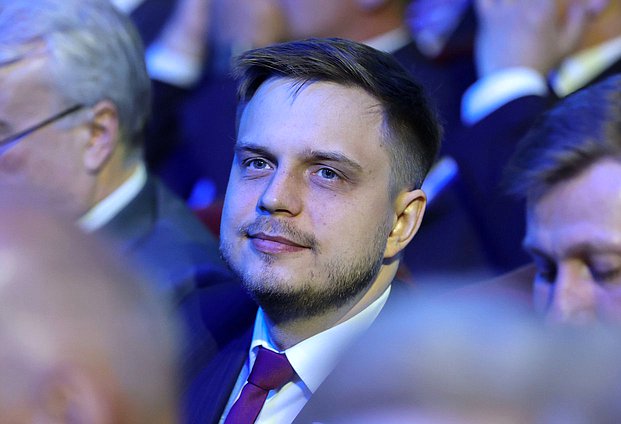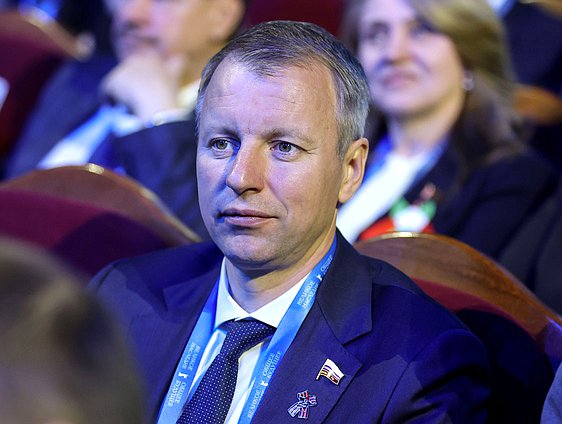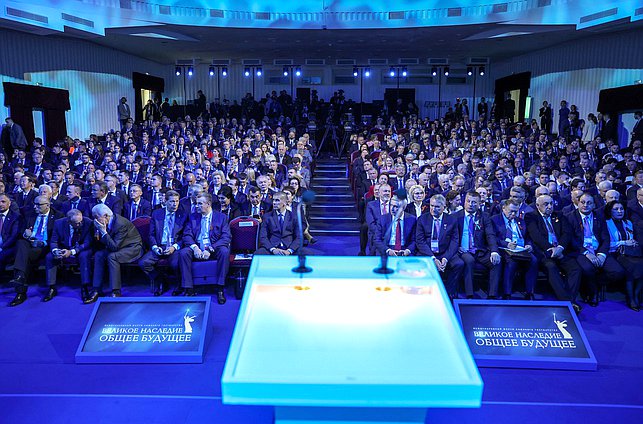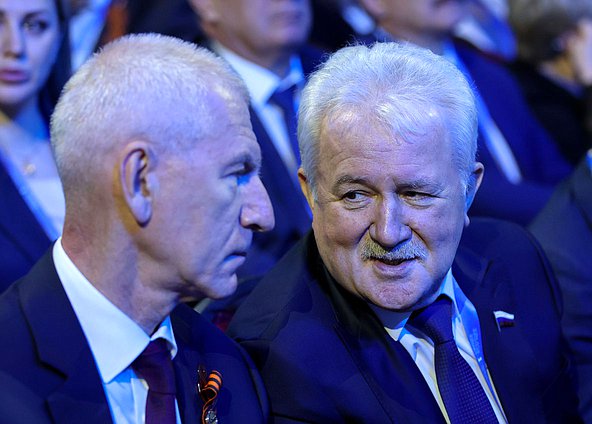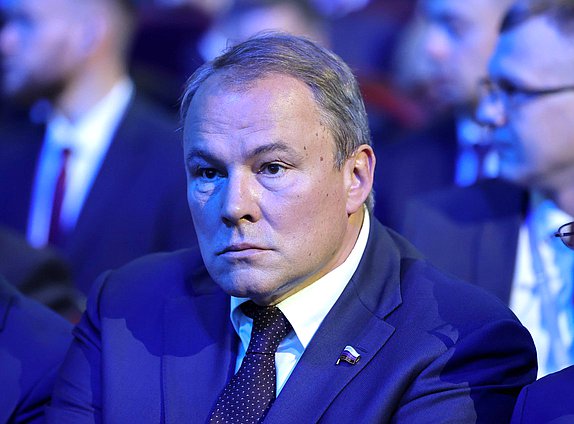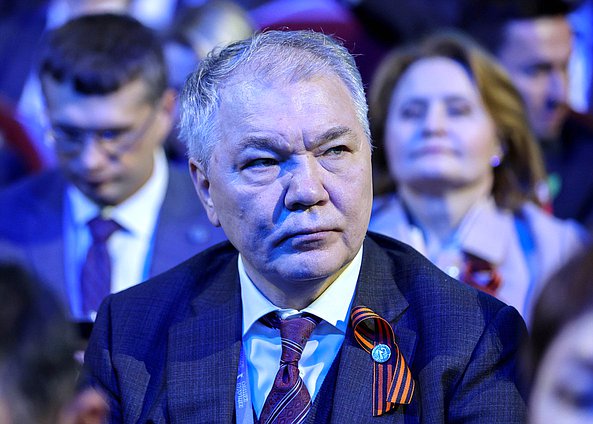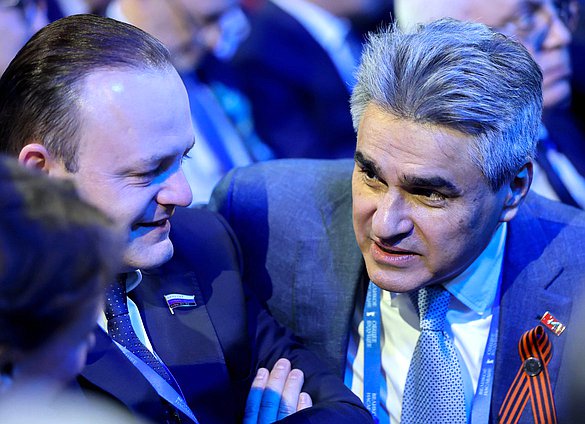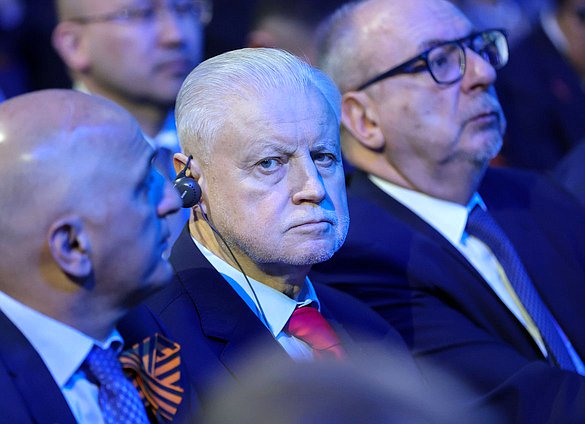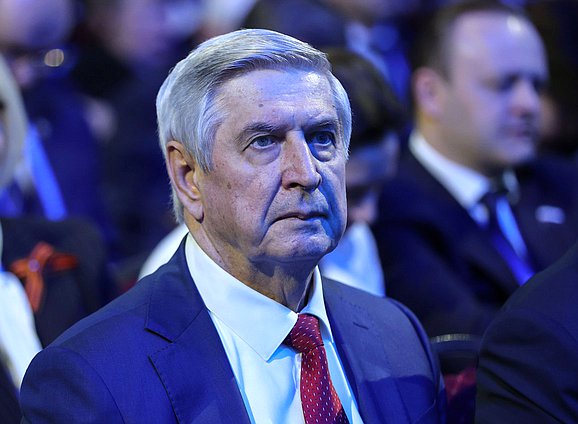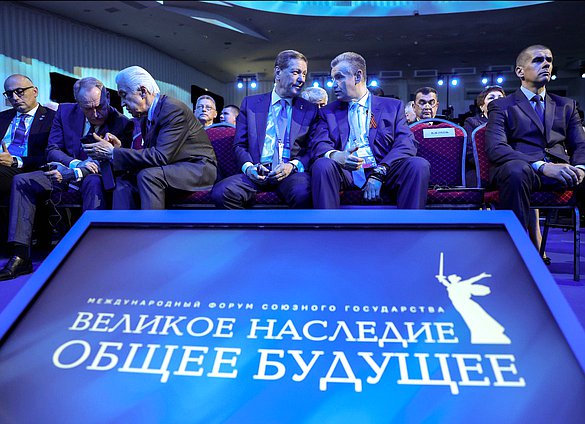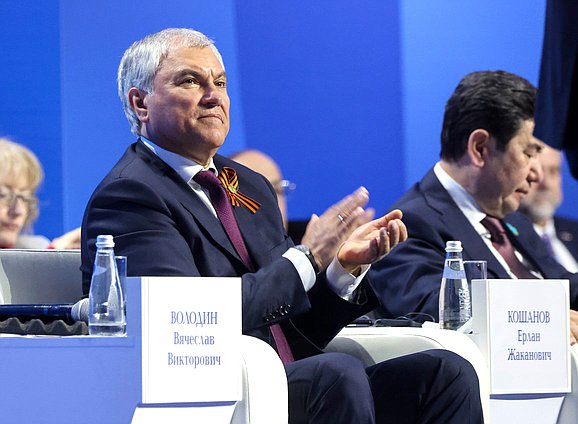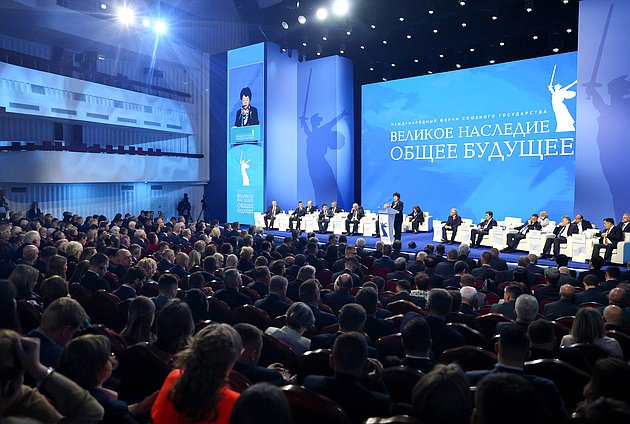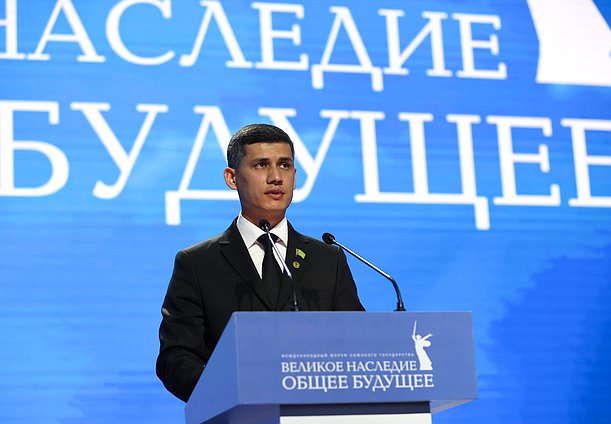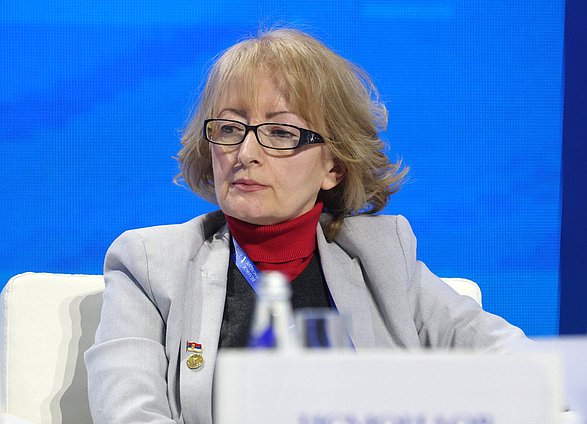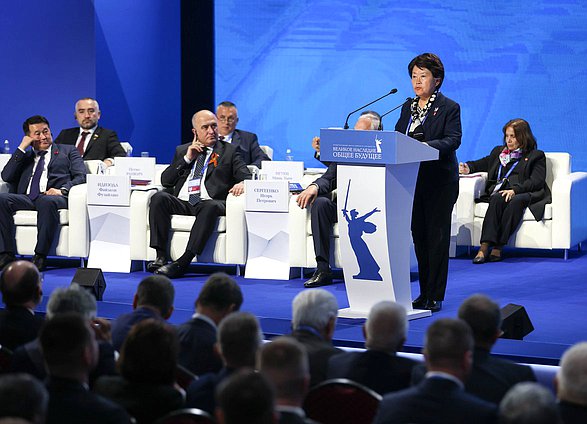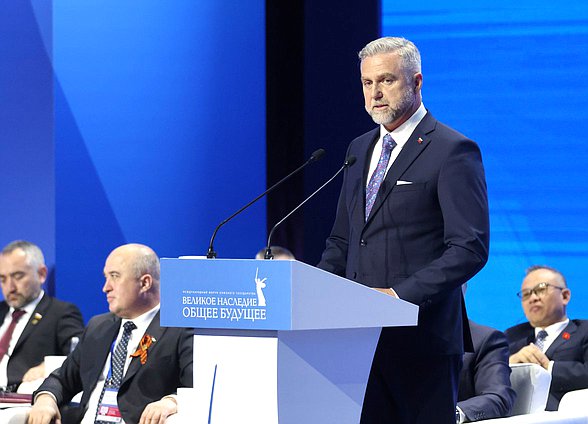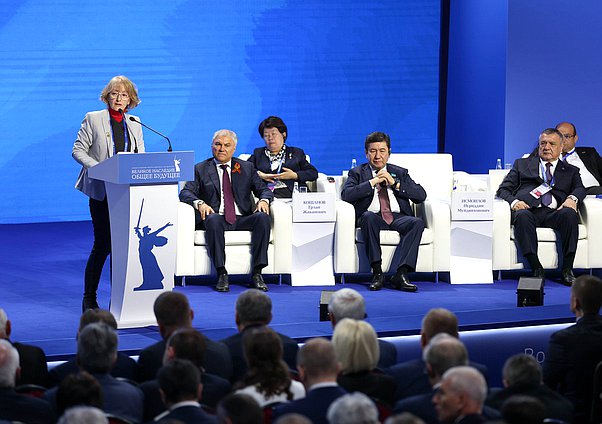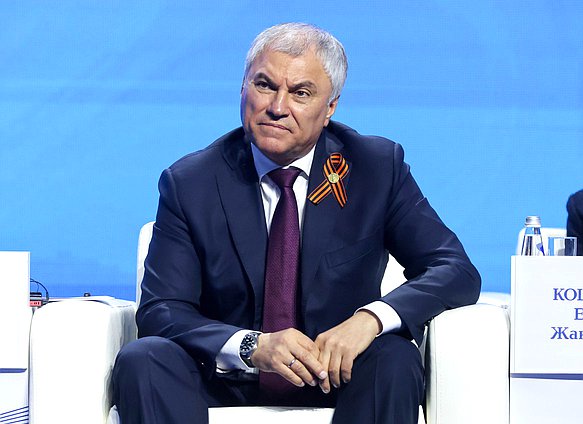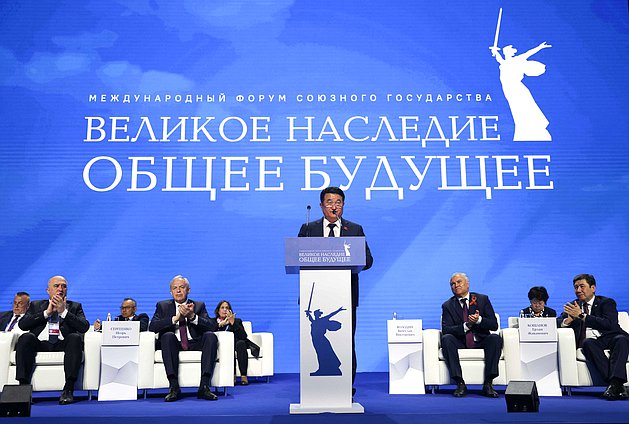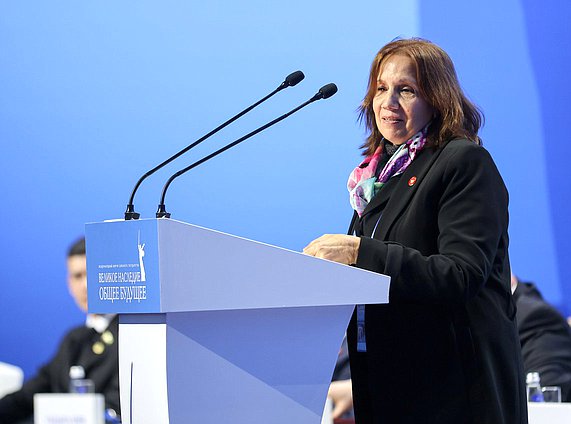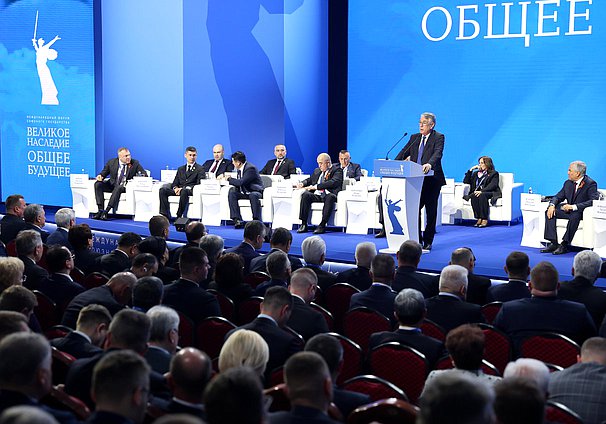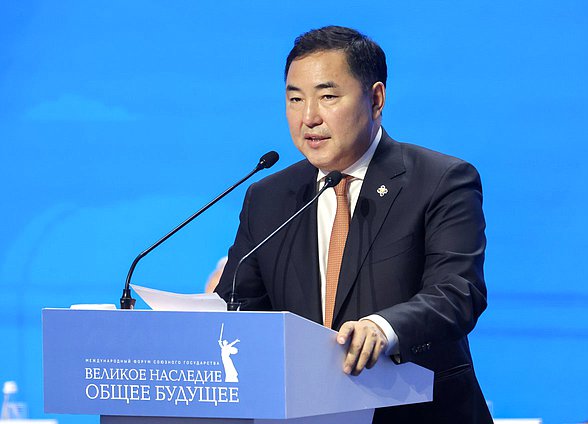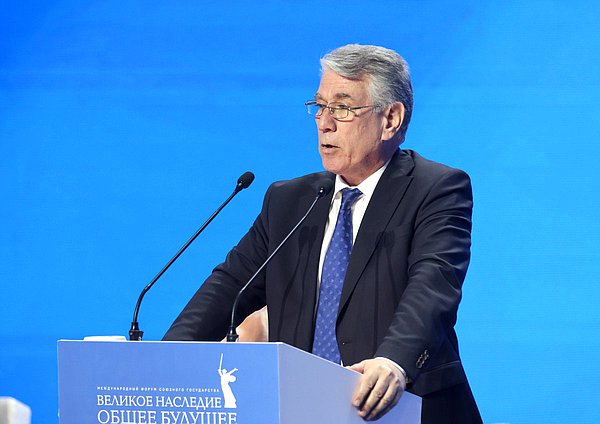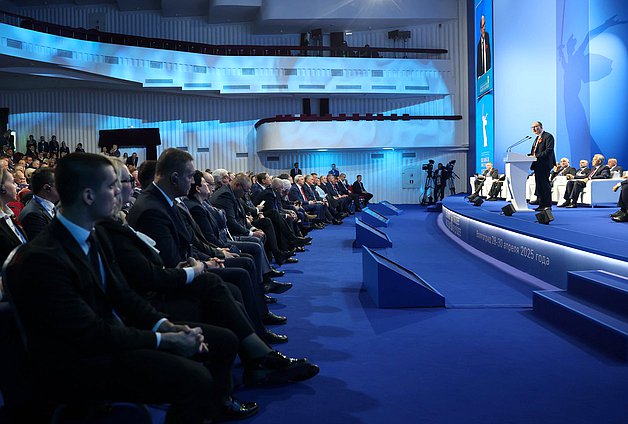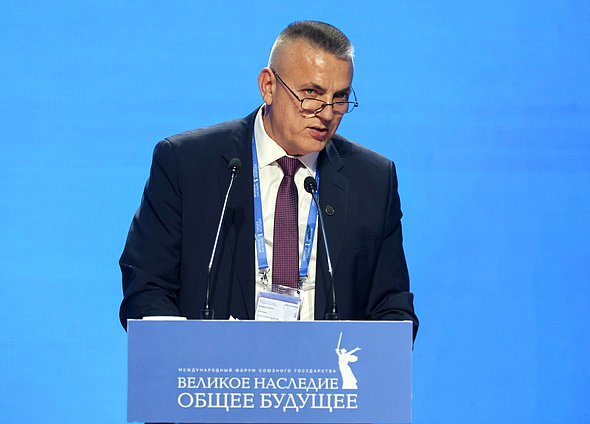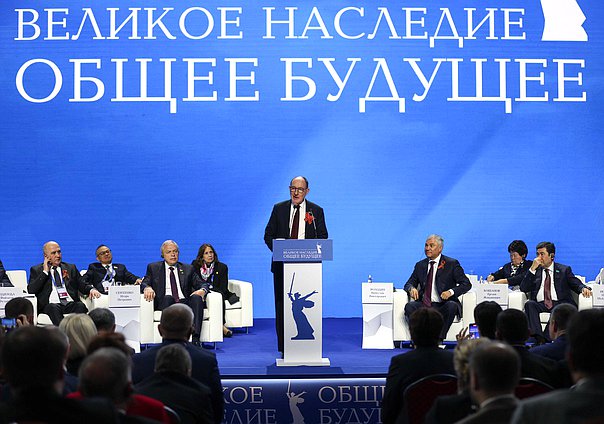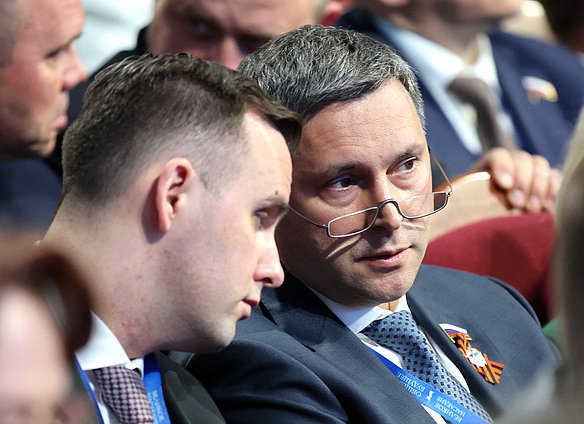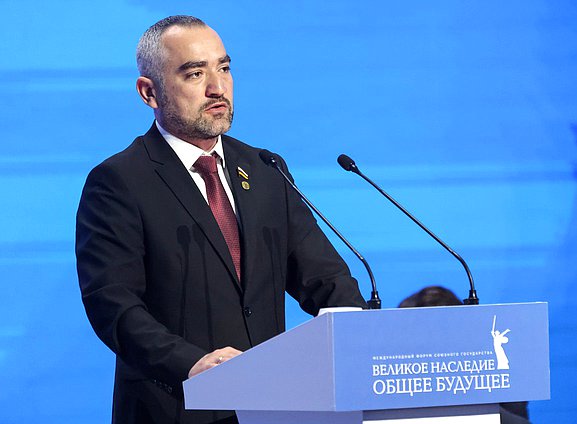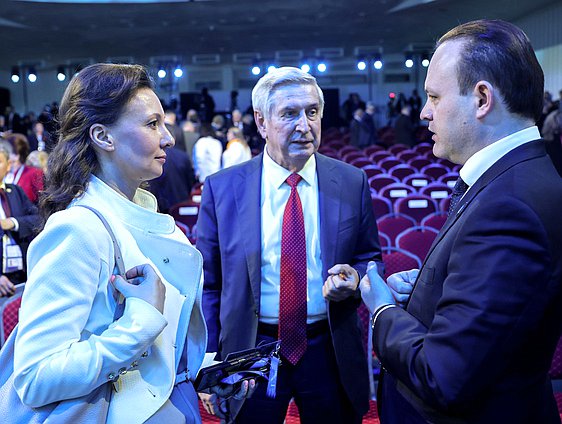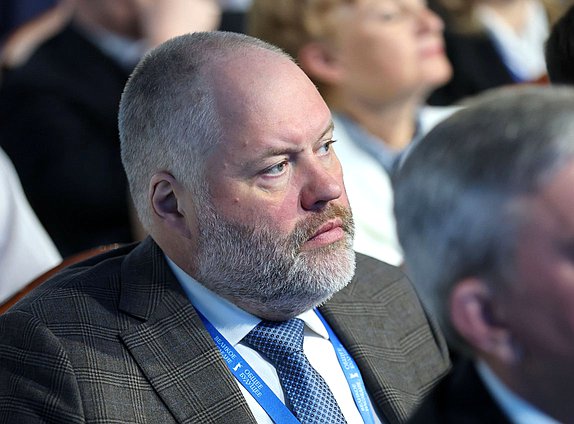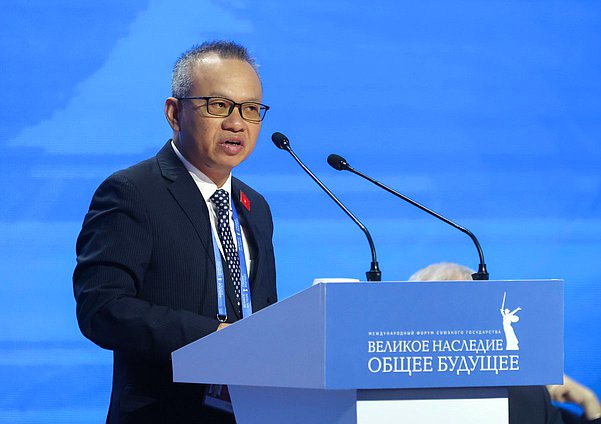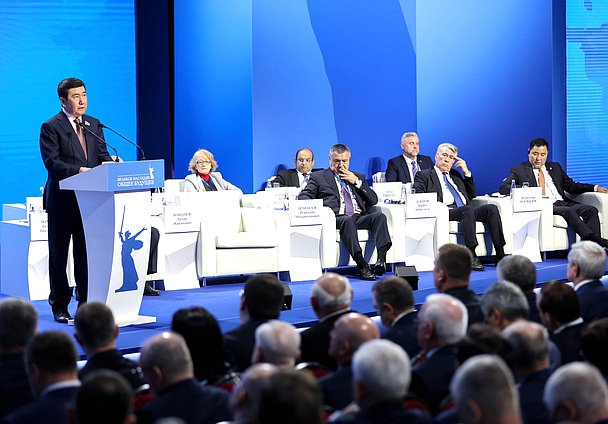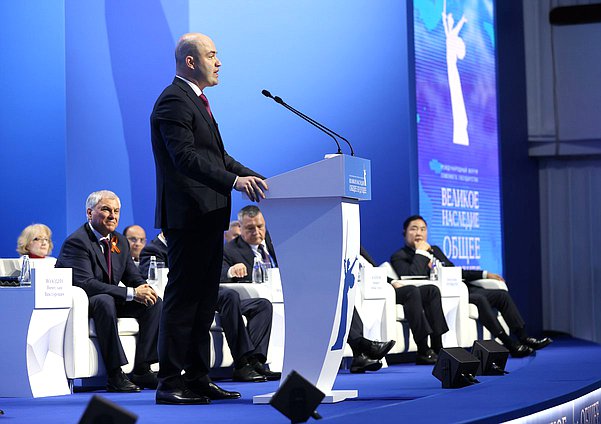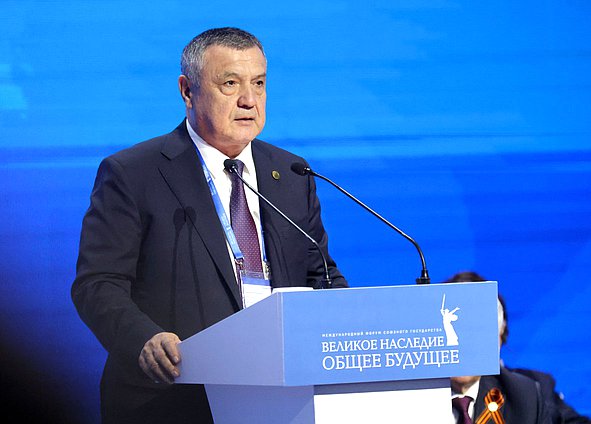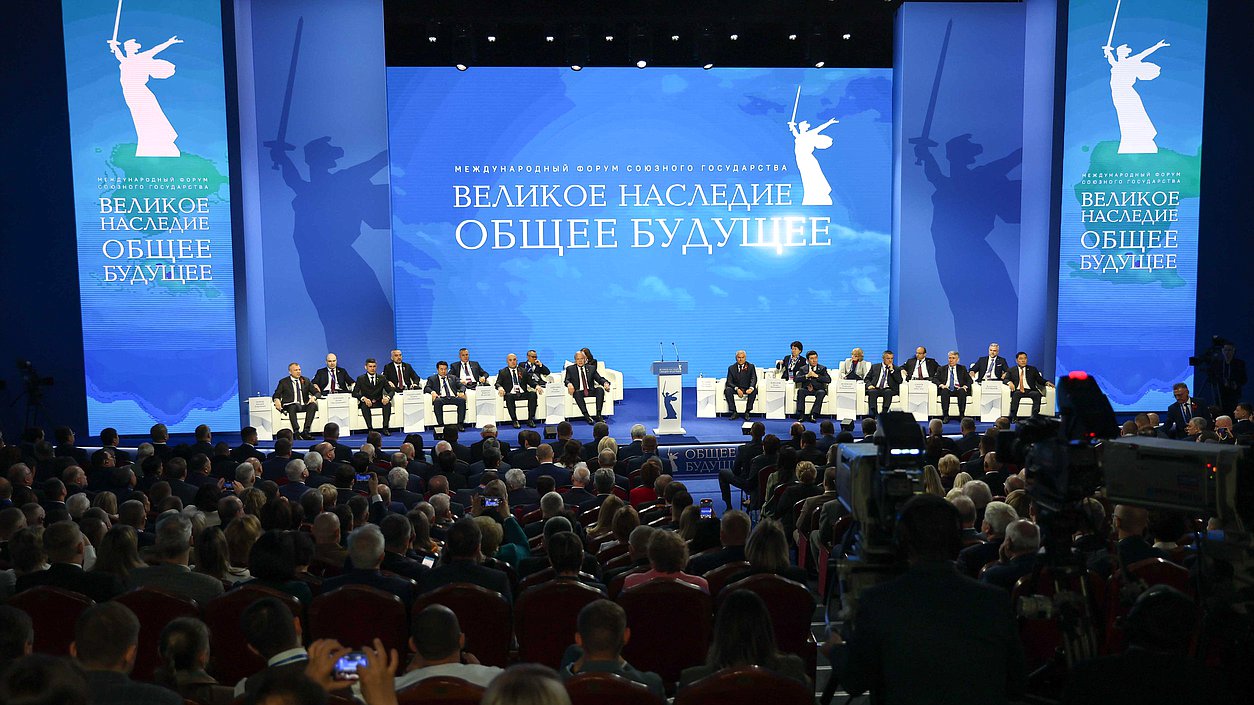
The plenary session of the International Forum “Great Heritage — Common Future” was held in the Volgograd Philharmonic Hall. The event was dedicated to the 80th anniversary of the Victory in the Great Patriotic War and was held at the initiative of the Parliamentary Assembly of the Union of Belarus and Russia.
Members of the official parliamentary delegations from different countries of the world, representatives of the expert and scientific communities took part in the discussion.
Opening the meeting, the Chairman of the State Duma, Chairman of the Parliamentary Assembly of the Union
of Belarus and Russia Vyacheslav Volodin

Vyacheslav Victorovich
The Chairman of the State Duma of the Federal Assembly of the Russian Federation of the eighth convocation. Elected in single mandate constituency № 163 (Saratov constituency - Saratov Oblast)
thanked all the Forum participants for their decision to take part in its activity.
“There is no coincidence that this session is being held in the hero city of Volgograd. As it was the city where took place the crucial events that determined the outcome of the Great Patriotic War and the entire World War II. The Battle of Stalingrad lasted 200 days and nights,” he noted.
According to him, “we are connected by the memory of those events.” “It is very important to hold such sessions, such conversations not only on memorable, remarkable dates, but also as part of our daily activities. This is why our great-grandfathers performed such heroic feats,” stressed Vyacheslav Volodin.
According to Vyacheslav Volodin, the EU leaders in their demands “have lost not only their conscience, but also have gone mad.” “Because only a cynical, crazy person can prohibit people from honoring the memory of their great-grandfathers, the memory of the victors,” he added.
“We will never tolerate the position of Western politicians possessed by revanchist attitudes, to rewrite history, to whitewash Nazi criminals and their accomplices. Their goal is to change the consciousness of the younger generation. They want our children and grandchildren to deny the heroic past of their grandfathers and great-grandfathers,” said Igor Sergeyenko, the Chairman of the House of Representatives of the National Assembly of the Republic of Belarus, First Deputy Chairman of the Parliamentary Assembly of the Union of Belarus and Russia.
The Chairman of the State Duma noted that the initiative to hold the Forum belongs to Igor Sergeyenko and his colleagues from the Parliament of the Republic of Belarus. He thanked him for the proposal to hold such an event.
Contribution of the Soviet republics to the victory over fascism
“The price of the Victory was very high — 27 million lives. And this is our common Victory. The victory of people of different nationalities who today live in different countries,” noted the Chairman of the State Duma.
Each republic of the Soviet Union made its own contribution to defeat fascism — both at the front and behind the battle lines, as emphasized Vyacheslav Volodin. “It was a real brotherhood — the brotherhood of the Kyrgyz, Kazakh, Russian and other peoples, and that made it possible to defend the country, protect its future and give new generations the opportunity to plan it,” he said.
“Side by side, our people fought the fascists, liberated the captured lands and states of Eastern Europe, and reached Berlin. In those harsh years of the war, our country was also a reliable rear providing all the necessary things to the front,” emphasized the Speaker of the Legislative Chamber of the Oliy Majlis of the Republic of Uzbekistan Nuriddinjon Ismailov.
According to him, about three hundred enterprises and factories of the Republic worked hard to provide all the necessary things to the front. “Uzbekistan supplied planes, military equipment, ammunition, food, clothing, medicine and other important products,” he said.
“Each republic made its own contribution to achieve this historic Victory,” emphasized the Deputy Chairman of the Milli Majlis of the Republic of Azerbaijan Ziyafat Asgarov.
He noted that this was the most heroic time for the people of Russia and Azerbaijan. “Our people, having defeated fascism, defended not only the freedom and independence of the countries, but also performed a historic liberation mission,” said Ziyafat Asgarov.
“First of all, I would like to express my gratitude to our Russian and Belarusian colleagues for the invitation to take part in such a significant forum. Special gratitude to the authorities of the city of Volgograd for the warm and hearty welcome,” said the Chairman of Mazhilis of Parliament of the Republic of Kazakhstan Yerlan Koshanov. In his speech, he also thanked Vyacheslav Volodin “for the opportunity to pay tribute to the heroes of the Battle of Stalingrad, which became a watershed event in the history of the Great Patriotic War.” “Many Kazakh people died here. There is a special monument dedicated to them and their memory, we bowed our heads in front of it,” he added.
Yerlan Koshanov noted that World War II became one of the most tragic pages in the history of mankind, “and Kazakhstan participated in the Great Patriotic War as part of a single family of nations.” “Therefore, that merciless war is part of the common history of multinational Kazakhstan,” added the Chairman of the Mazhilis. He recalled that dozens of divisions, brigades and separate units were formed on the territory of Kazakhstan, they fought on all fronts and there is not a single family in Kazakhstan that was not affected by the war.
“In the year of the Great Victory, about 2,000 memorial, scientific, research, educational and other events dedicated to this significant date will be held in Kazakhstan. The military parade on the occasion of the 80th anniversary of the Victory will be held in Astana and will become one of the largest events of recent years,” said Yerlan Koshanov. The President of the Republic of Kazakhstan Kassym-Jomart Tokayev also instructed to give names to more than 500 streets and villages in the country in honor of the war heroes, who were born there.
The Chairman of the Committee on Legislation and its Norms of the Mejlis of Turkmenistan Batyr Baylyev also thanked those who organized the Forum. “May 9 had become a symbol of courage, unity, heroism and mutual support of our peoples in difficult times,” he said.
Batyr Bayliyev noted that Victory Day is celebrated in Turkmenistan every year, “this holiday is very special to everyone.” “After all, victory in this war required unimaginable efforts and diligence, firmness of spirit and unity from all our peoples,” he emphasized.
The Chairman of the Standing Committee on Territorial Administration, Local Self-Government, Agriculture and Environment of the National Assembly of the Republic of Armenia Vahe Ghalumyan noted that Stalingrad itself “is associated with heroism and has become a symbol of Victory, and the invincible city on the Volga River has forever remained a symbol of the courage and will of the Soviet people.”
“We will definitely always remember that this greatest feat was performed by the Soviet people. The Armenian people also made a significant contribution to the Victory over fascism, and about 600,000 of them fought in the Soviet Army and the armies of the allied countries,” he said. Vahe Ghalumyan thanked his Russian and Belarusian colleagues “for such a high level of organization” of the Forum.
The head of the Armenian delegation noted the difficult period for the system of international relations. “Being the heir of the Great Victory is a great honor, but also a great responsibility. And in these difficult times, our main task is to keep the memory of the heroic deeds of the defenders of the Motherland, remember history and pass it on to the younger generation with dignity,” he said.
The Chairman of the Parliament of the Republic of South Ossetia, Alan Margiev, noted in his speech that “the Battle of Stalingrad was not just a crucial event in the Great Patriotic War and World War II.” “It was one of the greatest battles in the history of mankind and became a symbol of the courage and unexampled firmness of the city's residents and Soviet soldiers, including representatives of all the peoples of the former Soviet Union,” he emphasized.
According to him, “nowadays, when history is being cynically rewritten, the memory of the feat of the Soviet people is being destroyed, when the brown plague is gaining strength again, new generations should know the truth about the great battle.” Alan Margiev recalled that “Pavlov's house alone in Stalingrad managed to resist longer than the countries of Europe.”
Consolidation of forces to counter the distortion of the truth
Vyacheslav Volodin also drew attention of the session participants to the importance of joining efforts to preserve the historical truth about the events of the Great Patriotic War. According to him, this issue is one of the key priorities of the Union State of Belarus and Russia.
“We will try to do everything to provide legislative support to the decisions taken by our heads of states — Vladimir Vladimirovich Putin and Alexander Grigoryevich Lukashenko, who as part of their daily activities, as well as the heads of other states who are here today, do everything to preserve memory, to protect it,” he added.
Only the country, whose people respect their history, remember their heroes, has a future, according to the Chairman of the State Duma. “If we care about the future, we must remember the heroes and treat history with care. This is especially important in the time of challenges and threats, attempts by the West to distort history, to devalue the contribution of Soviet soldiers and officers to the Victory over fascism,” he said. According to Vyacheslav Volodin, parliamentarians of countries whose people fought on the fronts during the Great Patriotic War are obliged to prevent this.
“I am convinced that this Forum will make an invaluable contribution to preserving the historical memory of the joint feat of our fathers and will strengthen inter-parliamentary cooperation between the CIS member states to counter the falsification of historical truth and memory of the events and results of World War II and the Great Patriotic War,” said Faizali Idizoda, the Chairman of the Majlisi Namoyandagon of the Majlisi Oli of the Republic of Tajikistan.
According to him, this event “demonstrates the importance of patriotic education of the new generation based on traditional spiritual and moral values.”
The Chairman of the People's Assembly — Parliament of the Republic of Abkhazia Lasha Ashuba emphasized that May 9 “remains in our hearts as a symbol of heroism and strong courage of the Soviet people. Victory in the Great Patriotic War is our common historical Victory.” The Soviet people bore the brunt of the war, according to him.
Lasha Ashuba also noted that the Republic of Abkhazia supports the Russian Federation conducting a special military operation. “By fighting against neo-fascism, its participants, the descendants of the victors, are today defending our common values,” he said.
Common peace
The Vice-President of the National Assembly of People's Power of the Republic of Cuba Ana María Marí Machado said that the Great Victory was a significant event that “saved the world from the horrors of Nazism, shook the foundations of human society and left us with a legacy that we must preserve in our collective memory.” According to her, nowadays we witness the attempts to distort history by changing facts by those who want to “turn the glorious feats of the Great Patriotic War into ruins, but this cannot be erased from the memory of the people.”
“The heroic feats of the Great Patriotic War taught us a lesson. A united people with a strong will and courage is able to resist any aggression and win,” added Ana María Marí Machado. She emphasized that in the conditions of attempts to “revive the Nazi horror,” such forums allow us to learn lessons “that will help us in the present and in the future.”
According to Marina Raguš, Deputy Speaker of the National Assembly of the Republic of Serbia, the current common duty of countries is to resist the glorification of Nazism and bravely resist attempts to revise the results of World War II. “We must treat the ideas of values, peace, freedom, mutual respect and cooperation as priorities,” she added.
Marina Raguš said that the celebration of Victory Day in Serbia begins with an artillery salute in Belgrade, “so that everyone who has fallen asleep wakes up, so that those who have forgotten that the only true struggle is the struggle against Nazism and fascism wake up.”
Tibor Gašpar, Deputy Speaker of the National Council of the Slovak Republic, described the war as a clash of two forces: “one wanted to destroy, one wanted to save.” “This place was a real hell, but the will to live won. It was here when the madness called fascism was made ceased to exist,” he said.
According to him, he himself notices “attempts to rewrite history” both in Slovakia and in Europe. “Facts are being distorted, heroes are being defamed. Hatred is being cultivated again. This is the path to nowhere and we have no right to follow it. We remember who liberated us. They were soldiers of the Red Army. Their courage is the reason why we live, love, and raise children today. Their blood is in every stone of our freedom,” said the Deputy Speaker of the National Council of Slovakia.
“One of the key events in the history of the world, including the Russian people, is certainly the Great Patriotic War,” said the Deputy Chairman of the State Great Khural of Mongolia Bukhchuluun Purevdorj.
He emphasized the importance of the fact that the Russian people had carefully preserved the memory of the Victory all these years and protected it. “This is a Victory achieved at a huge cost, the lives and blood of millions of soldiers and citizens, and it is an extremely significant page in the history of both Russia and Mongolia,” said the parliamentarian.
“Today, we have gathered here in Volgograd with a sense of respect to pay tribute together to the memory of this great historical moment,” said Xin Chunying, the Chairwoman of the Constitution and Legislative Affairs Committee of the National People's Congress.
She conveyed sincere words of congratulations to the heroic Russian people from the leadership of the People’s Republic of China.
“The people of Russia and China have built a wall of flesh and blood to protect peace and justice throughout the world,” she said.
“We respectfully remember and pay tribute to the memory of tens of millions of the best sons who gave their lives for freedom and peace. The Soviet people played a decisive role in this, scarifying countless lives and making a huge contribution to peace where there is no place for fascism,” said Nguyễn Mạnh Tiến, the Deputy Chairman of the National Defense, Security and International Affairs Committee of the National Assembly of the Socialist Republic of Vietnam.
According to him, Vietnam strongly condemns any attempts to distort history and stands for the inviolability of the results of World War II, recorded in the UN Charter. “We are trying to ensure that no one could even have the idea of revising, distorting or denying the historical truth about World War II, for which we all paid with great blood,” said Nguyễn Mạnh Tiến.
The public figure, grandson of the first president of the Fifth Republic, French General Charles de Gaulle, Pierre de Gaulle, took part in the plenary session. “On behalf of General de Gaulle, I would like to express admiration for the resistance that the Soviet army showed fighting the fascist-Nazi invaders. And, of course, to express admiration for the self-sacrifice of the Soviet people,” he said.
According to Pierre de Gaulle, it is necessary to create a balanced world, “in which each country, each of us will have its place,” which will be based on the principles of respect between countries, respect for cultures and nations “We should create a world that will develop within the BRICS framework, and, of course, which will counter those blocs that always seek to unleash a war,” he emphasized.
Pierre de Gaulle called for remembering the lessons of history in order to understand the causes of the development of Nazism, fascism, “which appeared due to the lack of economic and social balance, and the absence of values.” “We see that the elites forget history, they are trying to rewrite our moral values,” he said. “This leads to such a void, a moral void, which unleashes a new war,” he added. According to him, Charles de Gaulle “fought for the freedom of the whole world.” “And therefore, Russia today sets an example of what my grandfather fought for. As this will help us to unite people. This will help us to restore culture, spirituality. This is our opportunity to create a multipolar world,” he added.
